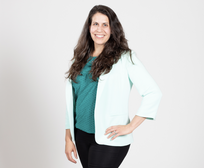Computer science needs women
 Kristin Tichenor
Kristin Tichenor
Here's the good news: By the year 2020, the U.S. Department of Labor predicts there will be 1.4 million computer specialist job openings. Here's the bad news: U.S. universities can fill 29 percent of those with qualified graduates.
Given there are also some 40,000 unfilled cybersecurity jobs within the federal government – a gap that may increase our risk for domestic and international hacking, identity theft and bank fraud – it is clear we need to expand our talent pool quickly.
One obvious approach is to grow the number of women in computing. While women comprise 57 percent of bachelor's degree holders in the U.S., they represent 12 percent of those earning college degrees in computer science. Data show the situation has worsened. In 1984, women represented 37 percent of computer science graduates (bachelor's, master's and PhD's); but today they represent just 18 percent.
We need to take bold action to reverse these trends, if we are serious about meeting the national need for computing expertise. Universities cannot passively wait for computer science applicants to appear. Girls represent 55 percent of the advanced-placement-test-taking population, and yet only 22 percent of AP computer science test takers are female
The middle school years are a critical time to encourage involvement in STEM. That's why WPI has invested heavily in outreach to girls from sixth grade onward. From Camp Reach, our award-winning summer program for seventh-grade grade girls, to Frontiers, an intensive two-week science and engineering program for high school juniors and seniors, our goal is to give girls of all ages the confidence to consider careers in these important fields.
It's working. In 2011, President Obama named WPI's Camp Reach as a recipient of the Presidential Award for Excellence in Science, Mathematics and Engineering Mentoring. In one study, 47 percent of Camp Reach participants later chose to major in a STEM discipline, compared to 29 percent in the control group.
As a critical next step in filling the tech workforce pipeline, WPI is now partnering with Girls Who Code, a national nonprofit dedicated to closing the gender gap in technology – a first college partnership for that organization. In just four years, Girls Who Code has given 40,000 girls nationwide the opportunity to learn computer coding and has more than 400 alumnae majoring in computer science in college. WPI has pledged $100,000 in scholarship funds annually to help Girls Who Code alumnae pursue undergraduate studies in computer science and engineering at WPI. It's an exciting new collaboration aimed at drawing girls and women into the high-tech fields.
Alliances like the WPI/Girls Who Code partnership are critical to meet the need for technology expertise. As a country, we face significant challenges, and we cannot afford to let a single brilliant mind walk away. Through early outreach to young people of all backgrounds, we can develop the broad talent base we need to address the challenges ahead. Achieving parity and diversity in computing will make for a stronger workforce and a stronger nation.
Kristin Tichenor is the Senior Vice President at Worcester Polytechnic Institute.












0 Comments